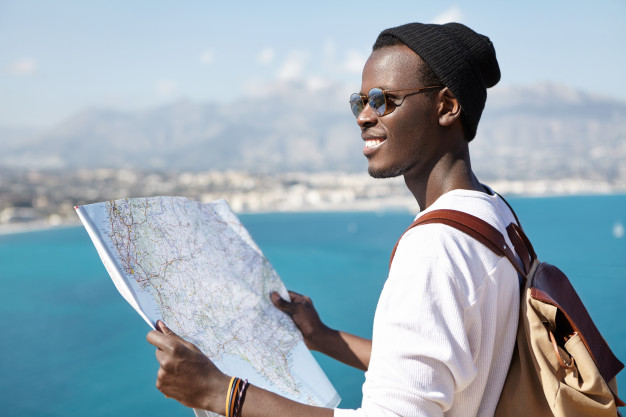Travel Etiquette
8 Travel etiquette every tourist should know, regardless of location
Besides being respectful and well-mannered to locals, there are other less obvious travel etiquette crucial to being a good tourist.
1. Be cautious at memorials or religious places
If you must take a photo, ensure that no one is in it as people might want some privacy and respect while they grieve. if possible, do not take pictures, make phone calls, to laugh with friends, or to speak loudly.
2. Dress as the culture of the locals demand
Dress as close to the locals as you can, for your own safety and as sign of respect. If you’re going to a conservative country, and everyone has a veil on, put on one as well.
3. Never take pictures without consent
If you’d like to take someone’s picture, go up to them and ask if they will permit it, and if they do not, be
understanding and back down immediately. If the person is far away, it might be okay to snap a quick photo, especially if they’re in the scenery you want to capture.
4. Copy the locals
Before making a phone call at a museum or opening your laptop at a restaurant, look around for clues. If you’re tempted to take a photo of something but no one is taking pictures, perhaps there’s a reason. Never be the odd one out.
5. Be patient
Even if you are jet lagged, even if you are late for an important event, even if everyone around you is slow, or distracted, find patience, as you are a guest and it’s not your place to demand fast service or the right of way. Hold the door for people, walk at a respectful distance and pace, and avoid showing signs of frustration when waiting for food or other services.
6. Keep your Google translate handy
Make prior research on phrases common to the locals especially greetings. Consult google translate so as not to mispronounce or use outdated terms that might offend the locals. No one expects you to learn a new language, but a few phrases might intrigue your listener and garner you favours.
7. Always be polite
Insults, especially to food is insulting a culture in many cases. If you don’t like the local food, you don’t have to eat it. But you do have to be gracious, take a small bite and pretend to like it.
8. Know your destination
Make some research before you travel. Know the culture and important historic events. In order to be a good travel student and ensure you’re not intentionally being disrespectful, make your findings. Are the locals conservative? Are you travelling during a holy week? Was there a war recently? For your safety during your travels, make your research.
Maintaining a good travel etiquette is none negotiable.
Travel tips
Do…
- Be polite, respectful and thankful
- Search information about the places you will be visiting
- Respect other cultures and learn about local customs
- Wait your turn
- Be patient
- Have all your travel documents ready and accessible in all airport lines
- Respect other people’s personal space
- Double-check all travel plans
Giving a tip or not
After eating at a restaurant, it is really common to leave a tip on the table. But, in some Asian countries, it is considered as an insult or a negative insinuation. It can mean
that you are considering that the person that is receiving the tip has a low economic level. In some other countries like the USA, Canada, Mexico, or Austria it is almost mandatory. This represents a significant part of their salary.
Means of transportation
When you are on a bus, train or subway wait for the other passengers to get in, and do not put your feet or your bag on the seats. If you see old people or a pregnant woman, try to offer your seat. When you sneeze, be careful with the direction you do
especially in view of COVID-19.
Don’t…
- Treat locals poorly
- Make negative comments
- Make assumptions
- Don’t block the aisles on planes, trains or other types of transportation
- Complain because things are not done that way at home
- Blame people if they have difficulty understanding you
- Be passive-aggressive
- Assume you have travel insurance (what travel insurance do you need?)
Be careful with gestures
Body language is a good way to communicate with other people. But, you have to keep in mind that gestures are interpreted in different ways depending on the country you are in. Taking a moment in silence is a good idea too. You can meditate
on the conversation and look for polite words to give the right answer or ask something correctly.
Always remember to:
- Carry your own first aid kit
- Avoid using your cell phone, tablet or camera in public spaces when travelling alone to avoid theft
- Have the emergency numbers of the place where you are
- Carry your passport stuck to your body; either in a money belt or a shoulder bag kept in front of you at all times
- Avoid those places where you can get lost or robbed
Cover image credit: People photo created by cookie_studio – www.freepik.com







